No case is too rare
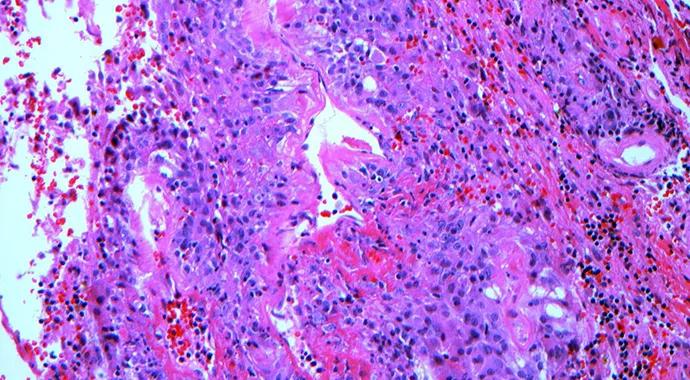
Advertisement
Cleveland Clinic is a non-profit academic medical center. Advertising on our site helps support our mission. We do not endorse non-Cleveland Clinic products or services. Policy
Families with children suffering from chronic forms of vasculitis are often frustrated by the lack of knowledge and coordination of care required to manage these rare disorders. Chronic childhood vasculitic conditions such as Takayasu arteritis, granulomatosis with polyangiitis (GPA; Wegener’s granulomatosis) and eosinophilic granulomatosis with polyangiitis (Churg-Strauss syndrome) affect several hundred children in the U.S. and can lead to life-threatening complications.
Given the rarity of these diseases, many pediatric rheumatologists have cared for only a handful of patients with vasculitic conditions over their careers. In cases when surgical interventions are required, many highly skilled pediatric surgeons have never operated on patients with such rare and complex conditions. And when these children mature into young adults, transitioning their care to adult subspecialists often proves difficult.
Cleveland Clinic Children’s Center for Pediatric Rheumatology has developed a nationally recognized comprehensive evaluation and treatment service for children with chronic vasculitis. Over the past eight years, our center has evaluated more than 125 patients with chronic vasculitis and published or contributed to several groundbreaking papers detailing our work and observations in this rare population.1-4 We’ve also recently submitted for publication a manuscript detailing our experience with Takayasu arteritis.
As Director of the Center for Pediatric Rheumatology, I am privileged to lead the vasculitis team, which consists of a variety of pediatric subspecialists from across Cleveland Clinic Children’s with extensive knowledge in the evaluation and management of diverse aspects of chronic pediatric vasculitis. These subspecialists include (among others):
Advertisement
These talented physicians actively collaborate with staff in the Center for Pediatric Rheumatology to provide comprehensive evaluation and recommendations to patients and their families. Additional services, including nephrology, pulmonary medicine, gastroenterology and ophthalmology, provide input on a regular basis as well.
As our vasculitis patients age, their care is easily transitioned to adult-care specialists in the internationally renowned Center for Vasculitis Care and Research in the Department of Rheumatic and Immunologic Diseases within Cleveland Clinic’s Orthopaedic & Rheumatologic Institute. Coordination and discussion of care plans among providers across medical and surgical subspecialties is a key differentiator of our program often noted by families during their time at Cleveland Clinic Children’s.
Referrals are often initiated by patients’ families or their local treatment teams. The staff at Cleveland Clinic Children’s will typically discuss the case via phone and attempt to provide general care recommendations to families and local providers. If an in-person evaluation is required, the scheduling team coordinates visits with all necessary specialists as well as diagnostic imaging procedures over three to five days. Prior clinical documentation, laboratory studies and diagnostic imaging information can be scanned into our electronic medical record system before the patient’s arrival for use by all providers during the patient’s stay.
Following evaluation, patients and their local provider teams are given a summary of the visit and recommendations for their records and consideration. The Message My Doctor function in Cleveland Clinic’s MyChart® online personal healthcare management tool enables families to directly and securely email the treatment team at Cleveland Clinic Children’s at any time. Return visits to Cleveland Clinic are largely dependent on patient needs and family wishes and typically occur one to two times a year. See the side story below (MAKE SURE THIS READS RIGHT DEPENDING ON HOW THE CASE STUDY IS INSERTED) for an illustrative case study of our coordinated approach.
Advertisement
Coordinated Expertise Yields Dramatic Turnaround in Takayasu Arteritis
An 11-year-old girl diagnosed with Takayasu arteritis developed severe stenosis of the left renal artery and superior mesenteric artery, resulting in hypertension and intestinal angina (Figure 1). Despite aggressive and appropriate immunosuppression by her local pediatric rheumatologist, the stenosis worsened and her uncontrolled hypertension, which was unresponsive to numerous antihypertensive medications, resulted in posterior reversible encephalopathy syndrome and heart failure. She was eventually transported to Cleveland Clinic Children’s by fixed-wing aircraft from the Cleveland Clinic Critical Care Transport fleet for further evaluation.

Figure 1
In collaboration with the Center for Pediatric Rheumatology, our vascular surgeon performed autologous bypass grafts to correct the diminished perfusion that was causing the patient’s symptoms. She tolerated the procedure well and had significant improvement in her heart function, blood pressure and intestinal angina, which allowed us to reduce the intensity of her immunosuppressive and antihypertensive regimens.
Two weeks after her transfer, the patient boarded a commercial flight back to her home state and now returns for visits with the Cleveland Clinic Children’s team once a year. Her local medical and surgical provider teams maintain contact with their colleagues at Cleveland Clinic so she can continue to enjoy expert care locally.
1. Gendelman S, Zeft A, Spalding SJ. Childhood-onset eosinophilic granulomatosis with polyangiitis (formerly Churg-Strauss syndrome): a contemporary single-center cohort. J Rheumatol. 2013;40(6):929-
Advertisement
2. Uribe AG, Huber AM, Kim S, et al; A Registry for Children with Vasculitis e-entry (ARChiVe) Network. Increased sensitivity of the European medicines agency algorithm for classification of childhood granulomatosis with polyangiitis. J Rheumatol. 2012;39(8):1687-1697.
3. Morishita K, Li SC, Muscal E, Spalding S, et al; ARChiVe Investigators Network. Assessing the performance of the Birmingham Vasculitis Activity Score at diagnosis for children with antineutrophil cytoplasmic antibody-associated vasculitis in A Registry for Childhood Vasculitis (ARChiVe). J Rheumatol. 2012;39(5):1088-1094.
4. Fowler NM, Beach JM, Krakovitz P, Spalding SJ. Airway manifestations in childhood granulomatosis with polyangiitis (Wegener’s). Arthritis Care Res (Hoboken). 2012;64(3):434-440.
Dr. Spalding is Director of the Center for Pediatric Rheumatology.
Advertisement
Advertisement

Systemic change needed to improve health outcomes for parents and children, say researchers
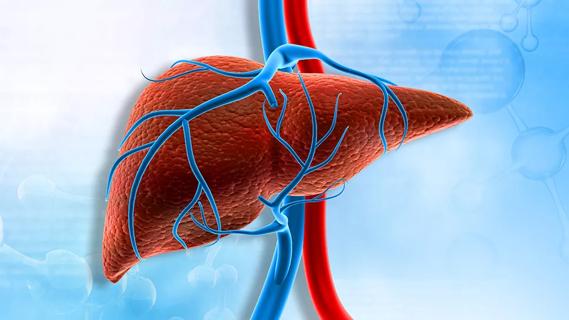
Rare genetic variant protected siblings against seizures and severe hypoglycemia

Movie has more positive impact than expected, says Head of Adolescent Medicine
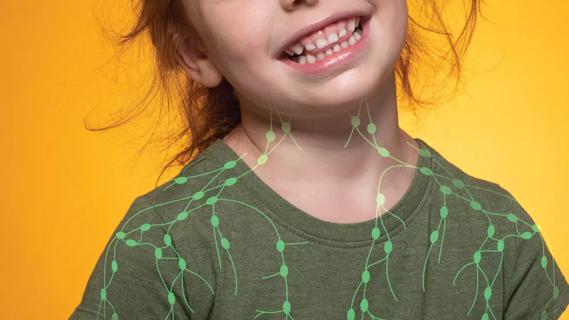
Genetic changes are similar between some vascular anomalies and cancers
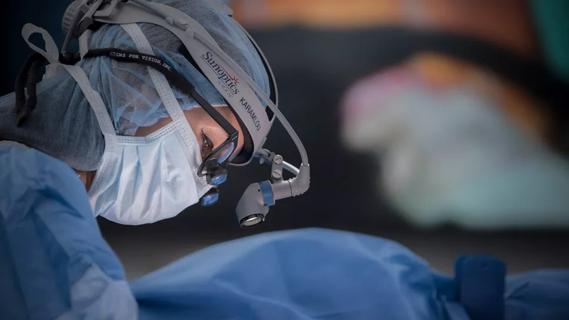
Expert panel advises a two-tier structure for surgical centers
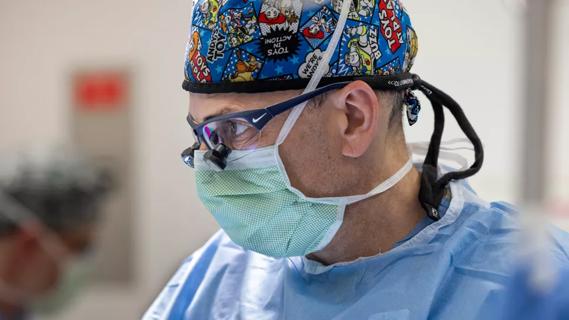
Our new head of pediatric general and thoracic surgery shares his passion and vision
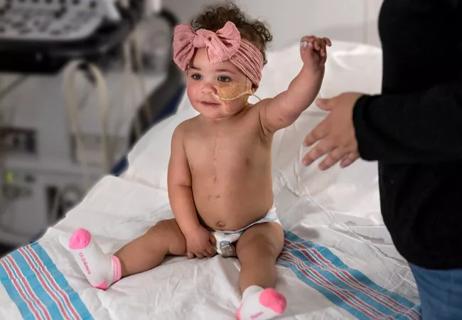
Basic understanding of condition and treatment is lacking